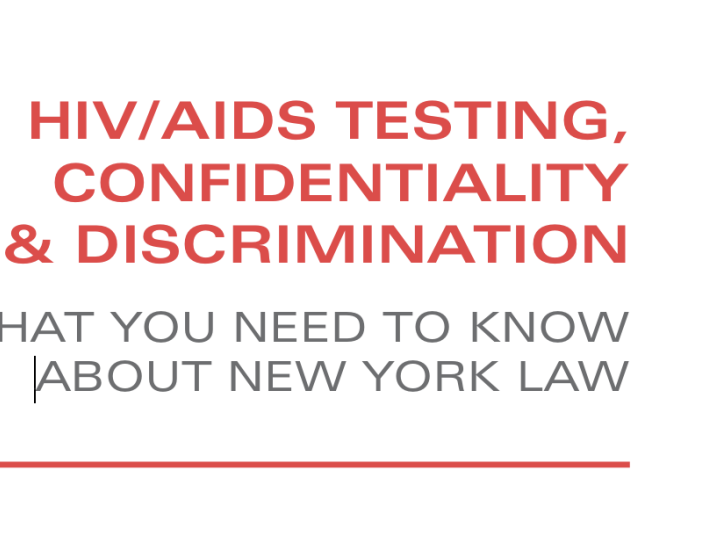Published February, 2016
How to Litigate an HIV Confidentiality Case, Slide and Video Presentation, Legal Action Center (2016)
This slide and video training presentation, prepared by Sally Friedman of the Legal Action Center, is for attorneys representing individuals in HIV confidentiality breach matters, including pro bono lawyers who do not generally practice in this area; and counsel for health care facilities, social service agencies, and other entities subject to HIV privacy laws. The presentation covers a brief overview of New York’s HIV confidentiality statute and other relevant privacy laws, a review of administrative and litigation remedies, effective ways to counsel clients about options, strategies for choosing legal claims, calculating damages, proceeding under a pseudonym, and other issues as well as sample forms. While much of the training focuses on the substantive legal protections under New York law, substantial sections do focus on issues relevant to an HIV confidentiality case in any jurisdiction. For example, Part 3 reviews how to establish client goals, pros and cons of litigation versus early settlement, confidentiality during discovery, and the effect of a settlement award on government benefits. Helpful handouts include a sample demand letter, complaint, and motion to proceed under a pseudonym.
For updates to this manual and a general overview of HIV/AIDS Confidentiality law in New York State, visit the Legal Action Center and its HIV/AIDS: Confidentiality & Testing Resources where you can also find additional training materials including How To Create and Update Your Agency's HIV Confidentiality Policies & Procedures and Ensure Staff Compliance (2016) and Client Advocacy: What To Do When Your Client's HIV Confidentiality or Testing Rights Have Been Violated (2014).
Copyright Information: CHLP encourages the broad use and sharing of resources. Please credit CHLP when using these materials or their content. and do not alter, adapt or present as your work without prior permission from CHLP.
Legal Disclaimer: CHLP makes an effort to ensure legal information is correct and current, but the law is regularly changing, and the accuracy of the information provided cannot be guaranteed. The legal information in a given resource may not be applicable to all situations and is not—and should not be relied upon—as a substitute for legal advice.
